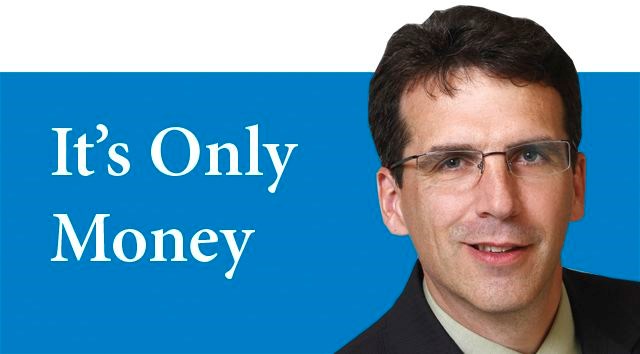Anyone who grew up in the Lower Mainland in the 1960s knew KVOS TV, the hokey little broadcaster out of Bellingham, Wash., which specialized in second-run shows like Hogan's Heroes and Star Trek. Although the station originated from the U.S., it catered primarily to us Canadians since we were the nearest major market within reach. We didn't have cable at our house, but that wasn't necessary to pick up the fuzzy reception from KVOS.
Everything about the station felt second-rate compared to the relatively splashy stations originating from Vancouver. Given that our population was some 30 times larger, all of that makes sense now.
In the 1970s, the CRTC rules also fooled some of us (me) into thinking that Mr. Dressup had nicer cardigans than Mr. Rogers, that CFL football was superior to the NFL and that Nick Adonidas was a legitimate super hero.
I think I was in my 20s before I realized that the CFL was a B-league and that we were actually America's hat, a media spec living just north of Mr. Rogers' neighbourhood. It was just today that I learned that even The Beachcombers was a knock-off of a former British show.
Not an original thought in the bunch!
If the point of the CRTC was to keep American media giants from so overwhelming us that we shrunk in to cultural oblivion, the point of the IRS is to ensure that U.S. influence is taxable in every possible iteration - even in Canada.
Tax exposure to the U.S. is most comprehensive for a U.S. citizen, so it is important to identify who this encompasses. While most U.S. citizens are quite aware of their U.S. status, numerous people residing in Canada will be surprised to learn that they are U.S. citizens.
Anyone born in the U.S. is automatically a U.S. citizen. While the vast majority of those born in the U.S. have lived there for their entire lives, there are many people who were born in the U.S. and do not now live there. The fact that one does not hold a U.S. passport has no bearing on this status. Being born in the U.S. is all that is needed to obtain U.S. citizen status, regardless of whether you - or the IRS (Internal Revenue Service) - are currently acting upon it.
The key question if you were born outside of the U.S. is whether either of your natural parents is a U.S. citizen. If both are U.S. citizens who are married (different rules apply if they didn't marry), then provided that at least one of them had at some time resided in the U.S., you too are a U.S. citizen. If only one of them is a U.S. citizen, then the length of time that he or she resided in the U.S., depending upon when he/she was born, will be determinative.
Finally, it is also important to note that if you are not a U.S. citizen, but at some time obtained and have not formally relinquished for tax purposes a U.S. green card (simply letting the card expire is not sufficient), you are taxed in the U.S. in a similar manner as a U.S. citizen. It is important to speak to a qualified immigration lawyer to determine your U.S. status.
Exposure to the U.S. income tax system arises for U.S. citizens but also "residents" for U.S. income tax purposes. This definition of U.S. residence covers (1) green card holders regardless of where they live, and (2) persons who are caught under what is referred to in the U.S. as the Substantial Presence Test (ugh).
It should be noted that U.S. green card holders living in Canada may be able to make an election under the Canada-U.S. income tax treaty under the treaty's tiebreaker rules to be considered a tax resident of Canada and a non-resident of the U.S. In doing so, their green card status may be jeopardized and they may be considered to have renounced their residency status and therefore may be subject to U.S. exit tax rules. For the purposes of this article, U.S. green card holders will be considered to be U.S. Income Tax Residents under the U.S. income tax system i.e., they will not have made the treaty election.
The Substantial Presence Test is intended to bring within the definition of U.S. Income Tax Resident those who are in the U.S. for more than 182 days in any given year, as well as people who spend at least 122 days per year in the U.S. on average (using a specified formula) over a three-year period. This catches many Canadian "snowbirds" i.e., typically Canadian citizens or residents that own or rent a home or other property in the U.S. and live in it usually over much of the winter, but can also include individuals who live in Canada but travel frequently to work in the U.S.
Mark Ryan is an investment advisor with RBC Dominion Securities Inc. (Member-Canadian Investor Protection Fund), and these are Ryan's views, and not those of RBC Dominion Securities. This article is for information purposes only. Please consult with a professional advisor before taking any action based on information in this article. See Ryan's website at: http://dir.rbcinvestments.com/mark.ryan.


.png;w=120;h=80;mode=crop)
